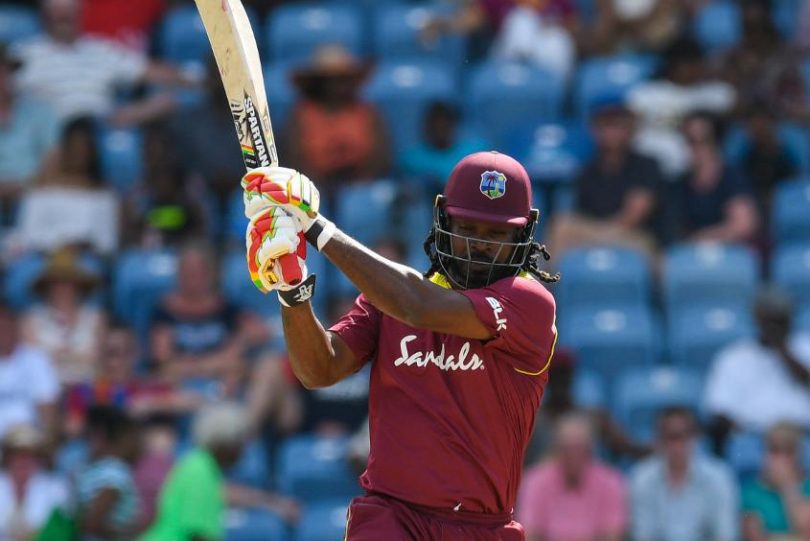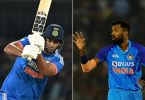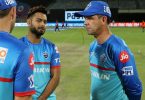Chris Gayle’s golden run since making his comeback to the West Indies one-day side now has him reconsidering his decision to retire from the sport after the ICC Men’s Cricket World Cup 2019.
In four matches since he came back, Gayle has 347 runs at a strike-rate of 120.06. In the most recent of those games, the fourth ODI against England in Grenada on Wednesday, 27 February, Gayle struck a brutal 162. His innings contained a staggering 14 sixes and powered the West Indies to their highest-ever ODI score, although it still wasn’t enough to overhaul England’s 418/6 as they fell short by 29 runs.
But Gayle breached personal landmarks, becoming the second man to smash 300 sixes in an ODI career, after Pakistan’s Shahid Afridi, and the second West Indian to 10,000 career runs, after former captain Brian Lara.
“I’ve been playing a lot of T20 cricket, so it’s always going to be a difficult coming back into 50 over cricket. But eventually the body gets accustomed to the 50-over format,” he said.
“I just have to work on the body, and then maybe you can see a bit more Chris Gayle. Things change quickly. Hopefully, the body can change in the next couple of months and we can see what happens. What’s the matter with the body? I’m nearly 40. But could I un-retire? We’ll see. We’ll take it slowly.”
Gayle personally enjoyed Wednesday’s slugfest, which featured 807 runs and a world-record 46 sixes, and was happy with his personal accomplishments. But he felt the defeat was ultimately a result of how they began with the ball.
“I think this is one of the most entertaining games I’ve ever played in,” he said. “It was a fantastic game of cricket. To get the 10,000-run milestone is a great feeling. I’ve done it in T20 as well. It’s a fantastic achievement from my point of view. Doing it for West Indies as well – that makes it even more superb.
“We didn’t utilise that new ball well. If we had, we would have been chasing 380. I’m sure the team are all disappointed. I can see the expression on their faces. It’s a learning process for the young players. If they do things differently, they could have won. So it’s good to see that body language when you lose. When that situation comes again, I’m sure it will be totally different.”







